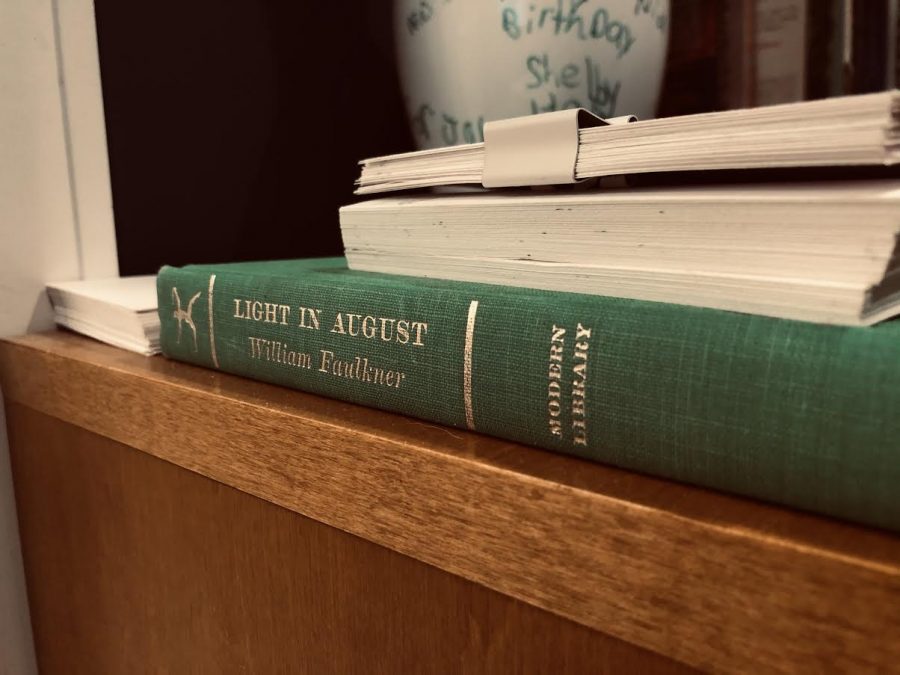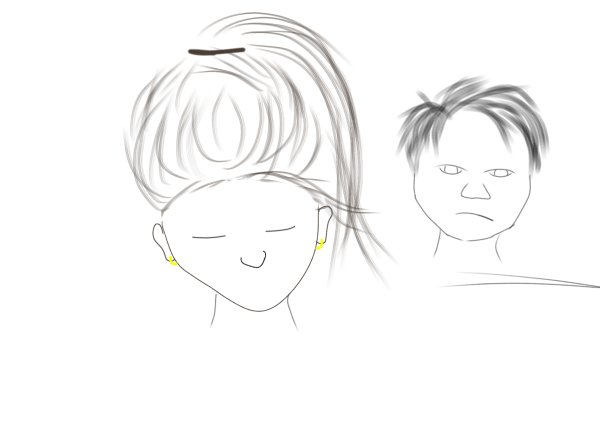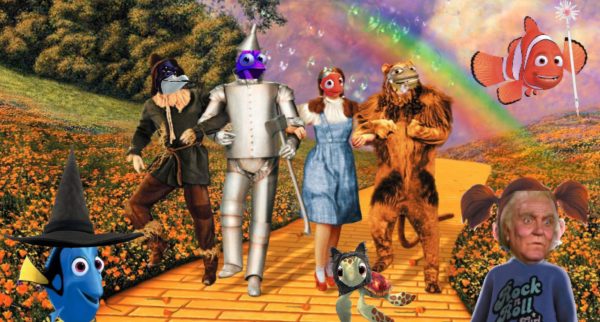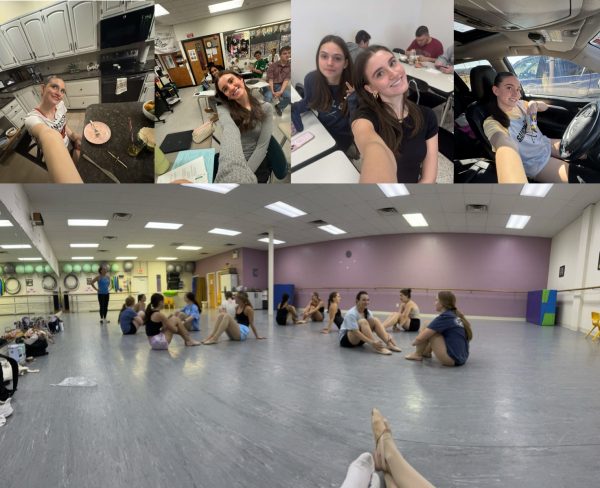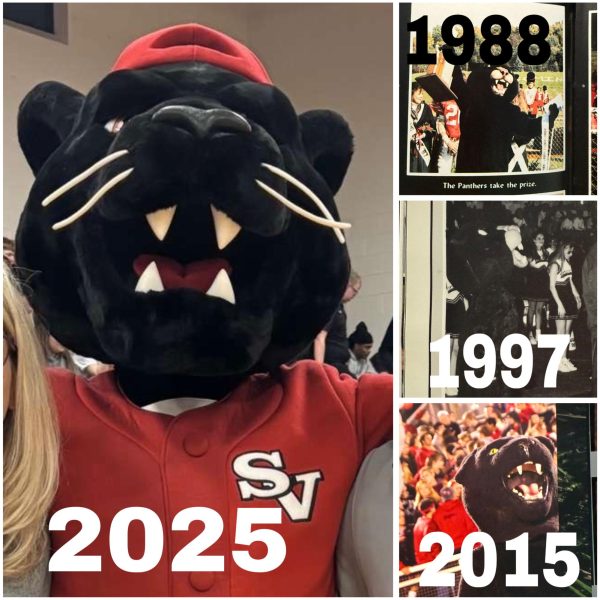Best literature found in school
Complex novels that left me desperately searching for another book of the same tier
Throughout the entirety of our schooling career, students have been exposed to a wide variety of books written by such greats as Shel Silverstein, Suzanne Collins, and Harper E. Lee. Although, it’s a shame that with Sparknotes, some students don’t get to actually enjoy the literature they’re assigned. Sparknotes aside, these are, in my opinion, the best books that came out of high school (and some middle school) assignments.
- Light in August (Honors Analytical Writing)- Faulkner’s Light in August was, without a doubt, the best book I’ve read in my high school career. I would even go as far as saying it’s the best book I will ever read. It documents the tale of Joe Christmas searching for his identity in the midst of abuse, all while outsider Lena Grove is looking for the father of her baby. From Gale Hightower’s immunity, to Lena Grove’s endless cycle, all the way to Joe Christmas’s search for his binary in the middle of a rainbow, every detail in this book was carefully placed and made the experience so much more enjoyable. Thankfully, I chose to space out my reading and not procrastinate reading the book, which made it so much more enjoyable. Although some scenes can get uncomfortable and highly explicit, Light in August is an epic tale that left me in an existential crisis afterward but in a good way.
- Romeo and Juliet (Honors English 9)- When students enter high school, the threat of reading Shakespeare is a constant dark cloud. While some students struggle with reading the style, the tale of these two star-crossed lovers brings up important themes with the idea of fate and true love. Shakespeare introduced me to a tier of verse that we’ve never seen in middle school, which was really eye-opening for me. My favorite part of this was acting it out; seeing students read the part of Juliet and Romeo during the iconic balcony scene was really amusing to me. “The play was fantastic!” said junior Cami Mann. “Although, I do think Romeo and Juliet could have managed their situation a little better!” This play has been adapted into several screen works, such as Gnomeo and Juliet.
- Invisible Man (AP Literature and Composition)- Through the life of an unnamed narrator, Ralph Ellison grapples with the idea of visibility; while some people are physically there, they merely become a phantom of what others perceive them to be. Starting from an arena, where he was pitted against other competitors for the chance to read an essay, the unnamed narrator travels to the Golden Day from college, and finally to the depths of Harlem where he exposes bigotry at its root. I really liked how Ellison used eyesight, something we all take for granted, as a complex allegory for something greater than just sensory input. My favorite part about this book is how Ellison uses music, specifically jazz, as a parallel truth to his life. Reading this book, I was prompted to search for my own identity and use the concepts Ellison presents in pursuit of my own visibility.
- To Kill a Mockingbird (Honors English Lit 10)- An iconic tale focused on the criminal justice system, Harper Lee uses Scout, an innocent young girl, to show how unnatural prejudice and discrimination are. This book teaches how judgments and stereotypes are taught. The unsettling ending of this book is jarring because of how realistic it is. Unfortunately, some people critique this book because in saying it’s a white-washed narrative where it views the white population as saviors. “I liked this book because I liked the idea of reading being like breathing,” stated senior Deven Guthrie, a member of the reading team. “I enjoy reading as much as I can and I was able to relate to Scout in that way.”
- One Hundred Years of Solitude (Honors Analytical Writing)- Through One Hundred Years of Solitude, Márquez uses magical realism, which stemmed from his grandmother’s fairytales, to show the journey of a nation that was subordinated via colonization. Macondo, the infamous town of mirrors, is the host for the Buendia family, founded by Jose Arcadio Buendia. In the town, the family is struck by a variety of abnormalities: a rainstorm that lasts five years, a town massacre that is forgotten by its people, and the mixing of identities that last generations. One thing I really loved about this novel was how elaborative it is. Because it covers so much ground, you can read it and analyze a different topic every time, such as biblical allusions or even the book itself being a living organism. Although it can be very difficult to follow, One Hundred Years of Solitude is one of the best books I have ever read; it was very easy to see why this novel was awarded a Nobel Peace Prize.
- The Yellow Wallpaper (Honors English 9)- By Charlotte Perkins Gilman, The Yellow Wallpaper is a short story about the narrator, a married woman, and her plight of “insanity”. Her husband, a doctor, belittles any physical or mental symptoms she has and forces her into bed rest, where she becomes obsessed with her yellow wallpaper. I really liked this story because of how imaginative the narrator is. In the absence of any physical stimulation, she dissociates from reality and focuses on anything she can, and thus, projects herself into the wallpaper. Although I had no idea what I was reading when I initially read it, through conversation and rereading, I was able to actually understand what was actually happening. “‘The Yellow Wallpaper” is a wonderful short story that addresses the unjust treatment of women in healthcare throughout the 1800s through an unreliable female narrator,” stated junior Ellie Stern.
- Whirligig (7th Grade Language Arts)- Looking back, I have no idea why we read this book in 7th grade. The premise of this book is as follows; After the narrator kills a girl named Lea Zamora in his failed suicide attempt, he is given two options: He can either go to prison or he can travel across the United States and build whirligigs in honor of Lea, both being forms of recompense for his accidental crime. The narrator’s flaw is that he believes the world around him is all his, and while he goes on his journey he corrects his ideology and tries to understand the concept of life and religion. This novel really struck me because of its conversations that are inherently subjective and always up to interpretation. Even though I probably did not understand most of the book when I read it, Whirligig is a novel based on grief that will leave everyone in tears at the end.
- Macbeth (Honors English Literature 10)- “It is a tale/Told by an idiot, full of sound and fury/Signifying nothing.” This is perhaps one of Shakespeare’s most iconic quotes, documenting Macbeth’s fall into pessimism and despair, which can be seen as a consequence of all of the crimes that he has committed in his life. The central premise of this play is Macbeth’s attempt to change fate, as stated by the witches in the first scene. As well all know, it doesn’t end out the way he wants it and Macbeth is slain by Macduff, who was delivered via cesarean section. Although again, Shakespeare is very hard to read, it was very fun to act this out; especially the phantom knife scene and the final battle. This play warns against hubris because as we can see with Macbeth, one can lose his himself to his own pride to the point of no return. It’s like a different form of Romeo and Juliet, just replace the star-crossed lovers with a murderous tyrant.
- Wonder (7th Grade Language Arts)- Throughout some sort of media, most people have heard the story of Wonder, by R. J. Palacio. It has now even been made into a cinema adaptation, which sort of defeats the entire premise of the book; the whole point is that it’s up to our imagination to use his descriptions to see what he looks like, hence the name “wonder”. The target of our wonder is Auggie Pullman, who has a medical condition that has left his face “disfigured.” He is enrolled in a public middle school, attempting to open up his horizons. Personally, my favorite character in the book is his older sister, Olivia, as she attempts to guard him and protect him but ultimately he is his own person and she has to find herself along the way. One plot event involving his pet left me devastated; I genuinely think I cried for a week. Through all the emotions one feels reading this book, it’s a good novel everyone should read to help open up new perspectives.
- Fahrenheit 451 (8th Grade Language Arts)- This is by far one of my least favorite books I’ve read in school. The only book I disliked more was Tangerine. Fahrenheit 451, by Ray Bradbury, is a dystopian novel that warns about the use of technology and censorship. The protagonist, Guy Montag, is a fireman who becomes disillusioned with his actions, as he has to burn books. This then leads him to help preserve books, which was a predictable “plot twist.” While I like the message behind the book, about how technology is the downfall of classic literature, I really dislike how Bradbury presents it in such a dry, boring way. The plot was so simplistic throughout the majority of the book and then the ending was just this jarring event that catches everyone off guard because it is not the monotonous events we’ve read before. If I were to read a dystopian novel, I would have enjoyed reading The Hunger Games or the Divergent series much more.
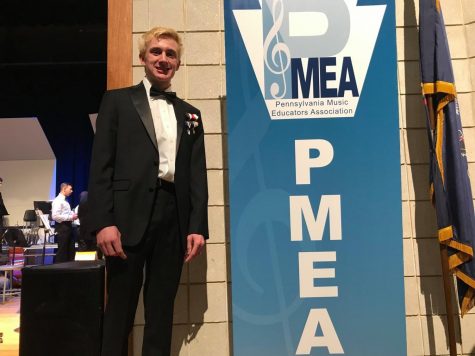
Howdy y’all! I’m Nick Brogle and I’m a junior for this current year. This is my first year doing the newspaper and I am one of the editors-in-chief...

